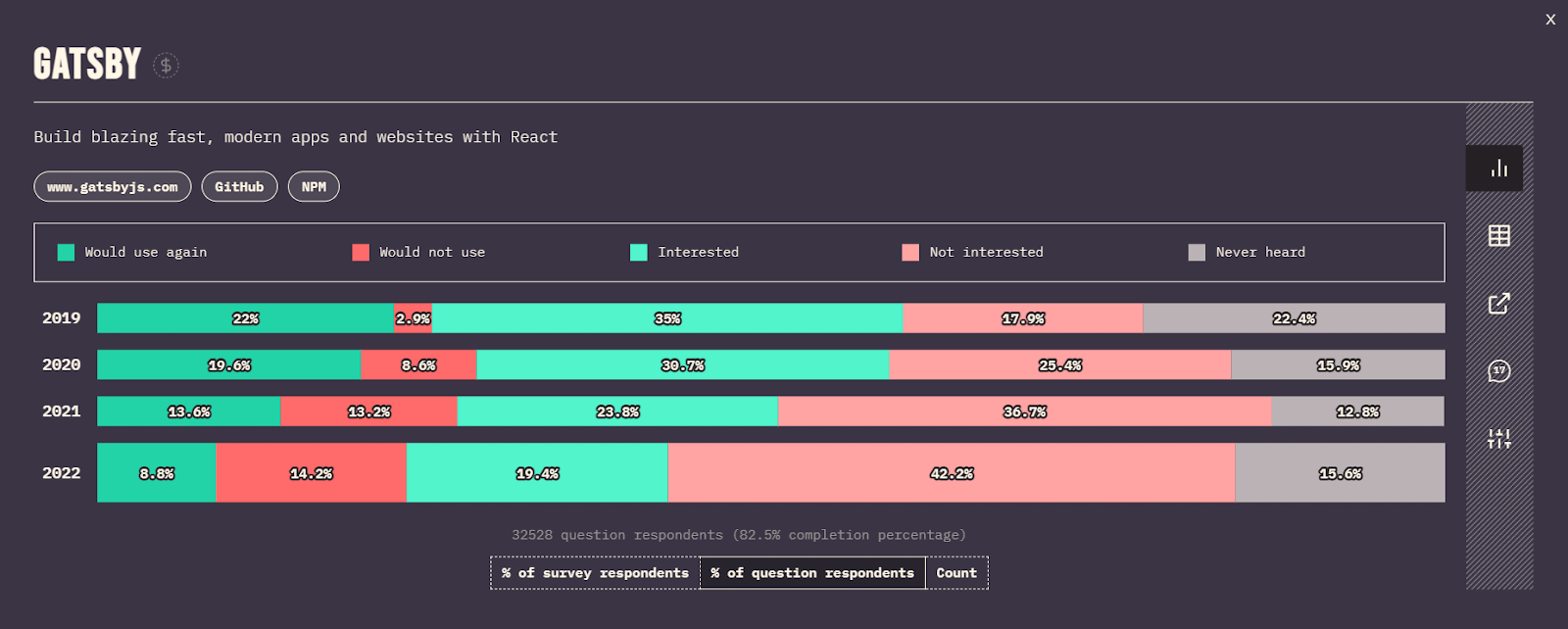AppliMarkets: Your Go-To Resource for App Insights
Explore the latest trends, reviews, and tips in mobile applications.
Frameworks That Make JavaScript Dance
Discover the top JavaScript frameworks that will elevate your coding game and make your web projects come alive like never before!
Exploring JavaScript Frameworks: Choosing the Right One for Your Project
In the evolving landscape of web development, choosing the right JavaScript framework can significantly impact your project's success. Popular frameworks like React, Vue.js, and Angular each come with unique features and advantages. For instance, React is known for its component-based architecture, allowing for reusable code, which can speed up development and facilitate maintenance. Meanwhile, Vue.js offers a gentle learning curve, making it an excellent choice for beginners or smaller projects, while Angular provides a comprehensive solution with a robust set of tools and community support for larger applications.
When considering which JavaScript framework to adopt, it's essential to evaluate your project's requirements, team expertise, and future scalability. Below are a few critical factors to consider:
- Project Size: Larger applications may benefit from the structured approach of Angular, whereas React or Vue.js might suit smaller, agile projects.
- Performance: React's virtual DOM helps in optimizing rendering for high-performance applications.
- Community and Support: Choosing a framework with a strong community, like React, can provide numerous resources and libraries to enhance your project.

5 Essential JavaScript Frameworks That Will Transform Your Development Workflow
In the ever-evolving landscape of web development, utilizing the right tools can significantly enhance your productivity and streamline your workflow. Here are 5 essential JavaScript frameworks that have proven to be game-changers for developers:
- React: A popular library for building user interfaces, React enables developers to create reusable UI components, making the workflow more efficient. You can learn more about React at React's official website.
- Angular: This framework is maintained by Google and is renowned for its ability to build dynamic single-page applications. Its powerful features, like two-way data binding, can save developers a lot of time. Check out Angular's official site for more information.
Continuing with our list, we have three more frameworks that deserve special mention.
- Vue.js: Ideal for both small and large applications, Vue.js offers a progressive approach. It allows developers to incrementally adopt features as needed, which can be beneficial in complex projects. Visit Vue.js official site to dive deeper.
- Node.js: While primarily known as a runtime environment, it offers a framework for building server-side applications using JavaScript. Node.js can greatly improve your development workflow by allowing the use of the same language on both the client and server sides. Explore more at Node.js official page.
- Express.js: Often paired with Node.js, this minimal and flexible framework provides robust features for web and mobile applications, enhancing your development experience. Check out Express's official website for further insights.
How Do JavaScript Frameworks Enhance Your Web Development Experience?
JavaScript frameworks have revolutionized the way developers create web applications by providing a structured approach to building user interfaces and managing data interactions. Frameworks like React, Angular, and Vue.js offer pre-built components and libraries, enabling developers to focus on crafting engaging features instead of dealing with the inherent complexities of plain JavaScript. This not only accelerates development timelines but also enhances consistency across applications by promoting the use of best practices and design patterns.
Moreover, the community support surrounding these frameworks is a significant advantage. Developers have access to a wealth of resources, including tutorials, documentation, and forums, where they can seek guidance and share insights. Additionally, many frameworks come with integrated tools for testing and debugging, which streamline the development process and improve code quality. As a result, leveraging JavaScript frameworks not only enhances productivity but also ensures that the end product is reliable, scalable, and maintainable.